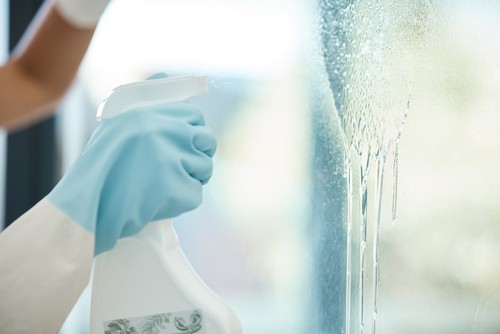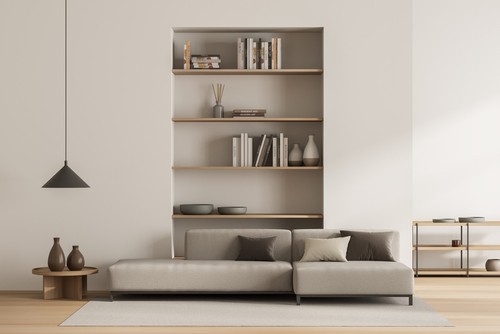
Hygiene and Personal Care: Maintaining Senior Well-Being
October 14, 2023
The Importance of Sanitization in Homes Today
November 25, 2023Preparing Your Home for a Newborn: Cleaning Checklist
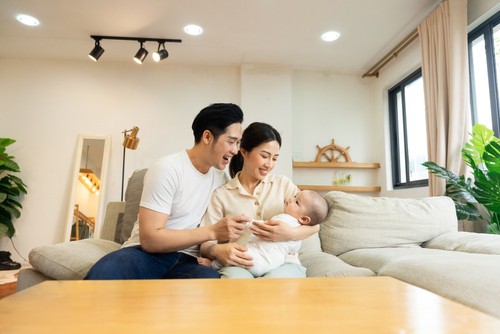
Preparing Your Home for a Newborn Cleaning Checklist
Preparing Your Home for a Newborn: Cleaning Checklist. The arrival of a newborn is a life-changing event filled with joy, excitement, and new responsibilities.
One of the key preparations is ensuring that your home is a safe, clean, and welcoming environment.
Cleanliness is crucial for protecting your baby’s health and creating a soothing atmosphere for the entire family.
This comprehensive checklist will walk you through the necessary steps to prepare every nook and cranny of your abode for your little one’s arrival.
Table of Contents
ToggleThe Importance of a Clean Home for a Newborn
Newborns are highly vulnerable to infections as their immune system is still developing. A clean home reduces the risk of your baby contracting illnesses.
Ensuring that surfaces are sanitized, the air is pure, and dust and allergens are kept at bay can shield your infant from potential health threats.
The environment in which a baby grows can significantly impact their development and behavior.
A clean and orderly home can provide a serene environment that promotes better sleep for the baby and a more peaceful, stress-reduced atmosphere for the parents.
Pre-Cleaning Preparations
Safety First – Non-toxic Cleaning Supplies
Babies are susceptible to the chemicals found in many cleaning products. Choosing cleaning supplies that are non-toxic and free from harmful chemicals is essential to prevent irritation or allergic reactions in your newborn.
Look for products labeled “non-toxic” and read the ingredients to ensure they are safe.
Setting Up a Cleaning Schedule
Cleaning the entire home can be overwhelming, especially for expectant mothers. A schedule that breaks down tasks into manageable chunks can help. Start with areas that need deep cleaning and gradually move to daily upkeep as the due date approaches.
The Cleaning Checklist Overview
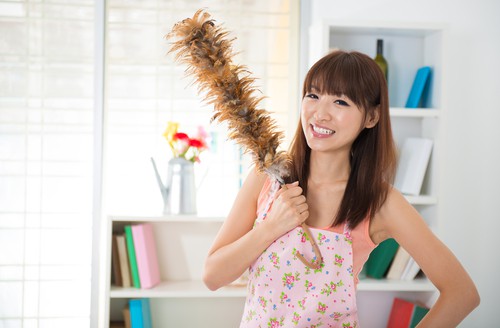
General Tips for Cleaning
Cleaning with a newborn in mind means paying extra attention to the details. Using vacuum attachments to reach under furniture, cleaning window sills to prevent mold growth, and ensuring that doorknobs and light switches are disinfected are just a few examples of thorough cleaning techniques.
Checklist Distribution
The checklist is organized by room type and cleaning frequency. Some tasks, like wiping down surfaces, need to be done more frequently, while others, like deep cleaning the oven, can be done less often.
Room-by-Room Cleaning
The Nursery
The nursery should be a sanctuary for your baby. This means not only cleaning but also organizing. The crib should be securely assembled, all toys should be washable and free of small parts, and the changing station should be stocked with all the essentials, ensuring everything is at hand without clutter.
The Kitchen
You will prepare your baby’s bottles and, eventually, their food in the kitchen. It’s important to regularly clean appliances, especially the refrigerator and any bottle sterilizers or warmers, to prevent any foodborne illnesses.
The Parents’ Bedroom
Parents need a haven to relax. This includes having a clean space, free from clutter and distractions that could disrupt sleep, as the amount of rest new parents can get is often limited.
The Bathroom
Regular cleaning of the bathroom is important to prevent the spread of germs. Stocking up on baby-friendly bathing products and keeping them within easy reach helps maintain a routine.
Cleaning Focus Areas
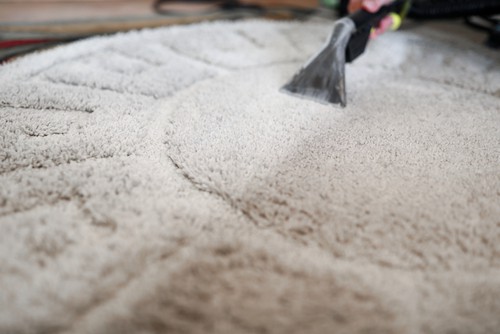
Floors and Carpets
Carpets should be vacuumed with a HEPA filter vacuum cleaner to capture as many dust particles and allergens as possible. Using a damp mop can prevent dust from becoming airborne if you have hardwood or tile floors.
Dusting and Allergens
Use a damp cloth to dust surfaces, capturing more particles than dry dusting. Pay particular attention to areas like bookshelves, blinds, and other places where dust can accumulate.
Laundry and Textiles
Babies have delicate skin, so washing their clothing, linens, and even stuffed animals with detergents free from dyes and fragrances is essential to avoid skin irritation.
Similarly, wash anything that will come into contact with the baby, such as your clothes and bedding, with the same gentle detergent used for the baby’s items.
Final Touches Before Arrival
Air Quality
The air quality in your home can be improved by avoiding smoking inside, using non-aerosol cleaning products, and ensuring that your home is well-ventilated. An air purifier with a HEPA filter can also help to remove particles from the air.
Setting Up a Sanitizing Station
A sanitizing station by the entrance can include hand sanitizer, a place to remove shoes, and even masks if necessary. This helps to maintain a clean environment by preventing the introduction of outside germs.
Maintenance Cleaning
- Daily Cleaning Routines
Daily routines may include wiping down surfaces after each use, sweeping floors, and quickly checking the baby’s play area to keep it free from hazards.
- Weekly Maintenance
This includes tasks such as vacuuming, mopping floors, and cleaning bathrooms. It is also a good time to do laundry and tidy up any accumulated clutter over the week.
Storage and Organization
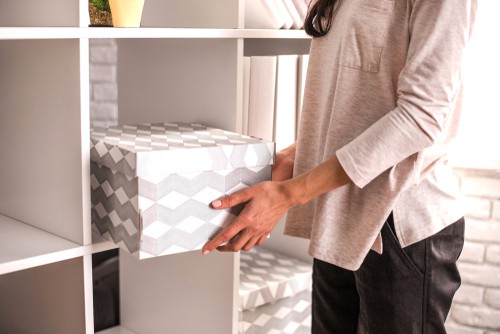
Organizing baby items can save time and frustration. Have a designated place for everything, and keep daily necessities within easy reach.
A clutter-free home is safer and more comfortable. Regularly check for items you no longer need and remove them to maintain a clean space.
Pet Owners’ Special Clean-Up
If you have pets, additional cleaning will be necessary to control hair and dander. Vacuuming and using lint rollers on furniture and clothing can help, as can regular pet baths.
It’s a good idea to create spaces or areas specifically for pets where pets are not allowed. This helps to keep the baby’s area clean and reduces the risk of allergic reactions or other health issues.
When to Seek Professional Cleaning Services
Sometimes, cleaning can be too much, especially if there are health concerns, complications during the pregnancy, or simply a lack of time. This is when it might be wise to seek professional cleaning services.
Choose a cleaning service with good reviews and recommendations, especially from those who have used their services in homes with newborns. They should be willing to use your cleaning products if you prefer certain non-toxic brands.
Post-Birth Cleaning Adjustments
As your baby grows and begins exploring, cleaning practices must adapt. Be vigilant for small objects on the floor, secure cabinets, and drawers, and ensure that any cleaning products are well out of reach.
Babies come with a new range of stains—from spit-up to diaper leaks. A good supply of gentle stain removers and understanding how to use them effectively on different surfaces will become increasingly helpful.
Frequently Asked Questions

How early should I start preparing my home for a newborn?
Ideally, begin at least three months in advance. This gives you plenty of time to clean, organize, and make necessary home changes.
What are the most critical areas to clean before the baby arrives?
The nursery, kitchen, and bathroom are critical areas. These spaces should be the cleanest because they are where you will care for the baby most often.
Are there any cleaning substances I should avoid?
Yes, avoid using bleach, ammonia, or any harsh chemicals that can leave residues harmful to a baby. Opt for alternatives like baking soda, vinegar, or other natural cleaning agents.
How can I maintain cleanliness with minimal sleep and time?
Create a realistic and manageable cleaning routine, focus on high-traffic areas, and don’t hesitate to ask for help from friends and family.
What are some quick cleaning tips for unexpected messes?
Keep cleaning wipes, a handheld vacuum, and spot cleaners in accessible areas throughout your home for quick responses to spills and accidents.
How often should I clean baby toys and accessories?
Wash and sanitize toys the baby frequently touches or puts in their mouth daily or as often as needed to keep them germ-free.
Preparing Your Home for a Newborn: Comprehensive Cleaning Checklist – Conclusion
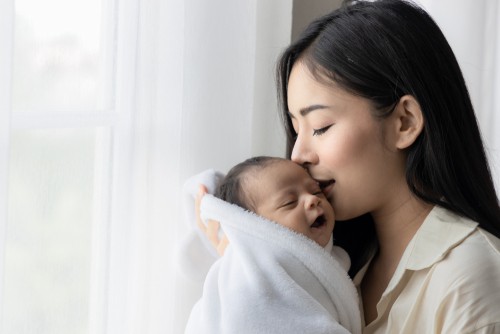
Preparing your home for a newborn is an important task that sets the stage for a healthy and happy start to your baby’s life. It involves thorough cleaning, organizing, and maintenance of your living space.
Following this detailed checklist can create a safe, clean, and comfortable environment for your new arrival!
Are you seeking a professional and reliable part-time helper or weekly home cleaning services in Singapore? Contact us today!


